-
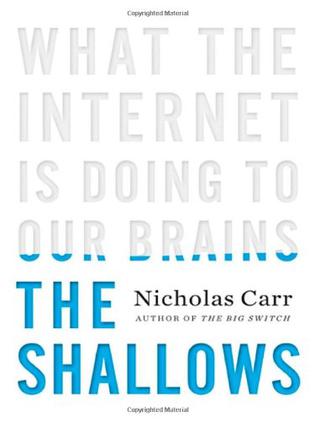
The Shallows
"Is Google making us stupid?" When Nicholas Carr posed that question, in a celebrated Atlantic Monthly cover story, he tapped into a well of anxiety about how the Internet is changing us. He also crystallized one of the most important debates of our time: As we enjoy the Net's bounties, are we sacrificing our ability to read and think deeply? Now, Carr expands his argument into the most compelling exploration of the Internet's intellectual and cultural consequences yet published. As he describes how human thought has been shaped through the centuries by "tools of the mind"--from the alphabet to maps, to the printing press, the clock, and the computer--Carr interweaves a fascinating account of recent discoveries in neuroscience by such pioneers as Michael Merzenich and Eric Kandel. Our brains, the historical and scientific evidence reveals, change in response to our experiences. The technologies we use to find, store, and share information can literally reroute our neural pathways. Building on the insights of thinkers from Plato to McLuhan, Carr makes a convincing case that every information technology carries an intellectual ethic--a set of assumptions about the nature of knowledge and intelligence. He explains how the printed book served to focus our attention, promoting deep and creative thought. In stark contrast, the Internet encourages the rapid, distracted sampling of small bits of information from many sources. Its ethic is that of the industrialist, an ethic of speed and efficiency, of optimized production and consumption--and now the Net is remaking us in its own image. We are becoming ever more adept at scanning and skimming, but what we are losing is our capacity for concentration, contemplation, and reflection. Part intellectual history, part popular science, and part cultural criticism, The Shallows sparkles with memorable vignettes--Friedrich Nietzsche wrestling with a typewriter, Sigmund Freud dissecting the brains of sea creatures, Nathaniel Hawthorne contemplating the thunderous approach of a steam locomotive--even as it plumbs profound questions about the state of our modern psyche. This is a book that will forever alter the way we think about media and our minds. -
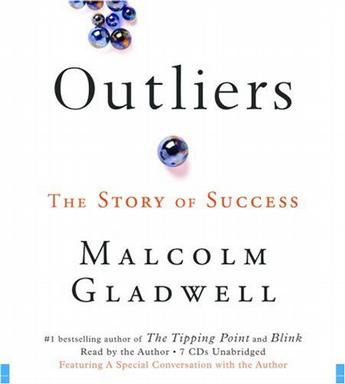
Outliers
There is a story that is usually told about extremely successful people, a story that focuses on intelligence and ambition. Gladwell argues that the true story of success is very different, and that if we want to understand how some people thrive, we should spend more time looking around them-at such things as their family, their birthplace, or even their birth date. And in revealing that hidden logic, Gladwell presents a fascinating and provocative blueprint for making the most of human potential. In The Tipping Point Gladwell changed the way we understand the world. In Blink he changed the way we think about thinking. In OUTLIERS he transforms the way we understand success. -
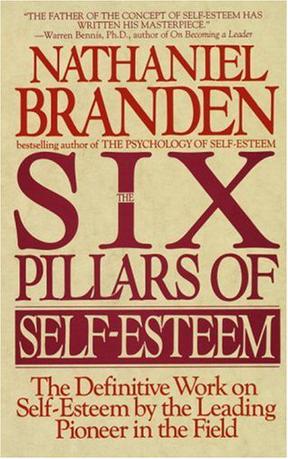
The Six Pillars of Self-Esteem
Nathaniel Branden's book is the culmination of a lifetime of clinical practice and study, already hailed in its hardcover edition as a classic and the most significant work on the topic.Immense in scope and vision and filled with insight into human motivation and behavior, The Six Pillars Of Self-Esteem is essential reading for anyone with a personal or professional interest in self-esteem. The book demonstrates compellingly why self-esteem is basic to psychological health, achievement, personal happiness, and positive relationships.Branden introduces the six pillars-six action-based practices for daily living that provide the foundation for self-esteem-and explores the central importance of self-esteem in five areas: the workplace, parenting, education, psychotherapy, and the culture at large.The work provides concrete guidelines for teachers, parents, managers, and therapists who are responsible for developing the self-esteem of others.And it shows why-in today's chaotic and competitive world-self-esteem is fundamental to our personal and professional power. -
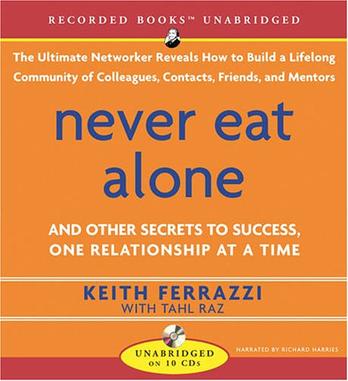
Never Eat Alone
-
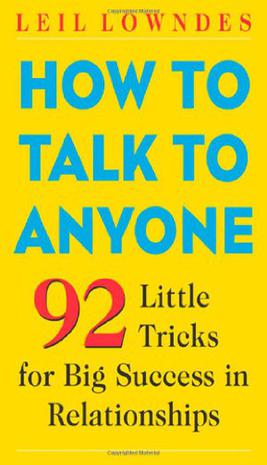
How to Talk to Anyone
在线阅读本书 "You'll not only break the ice, you'll melt it away with your new skills."--Larry King "The lost art of verbal communication may be revitalized by Leil Lowndes."--Harvey McKay, author of Swim with the Sharks Without Being Eaten Leil Lowndes' How to Talk to Anyone offers101 time-tested hints, tips, and techniques for confidently communicating with others. A bestselling author and renowned communications consultant, Lowndes focuses on ice-breaking skills and communication techniques that are proven successful when making a positive first impression, establishing instant rapport and credibility, and more. Packed with basic, no-nonsense advice and solid research evidence about which techniques work best in which areas, How to Talk to Anyone show readers how to: Make small talk not so small Use body language to captivate an audience Look like you know what you're talking about--even when you don't -

The Road Less Travelled